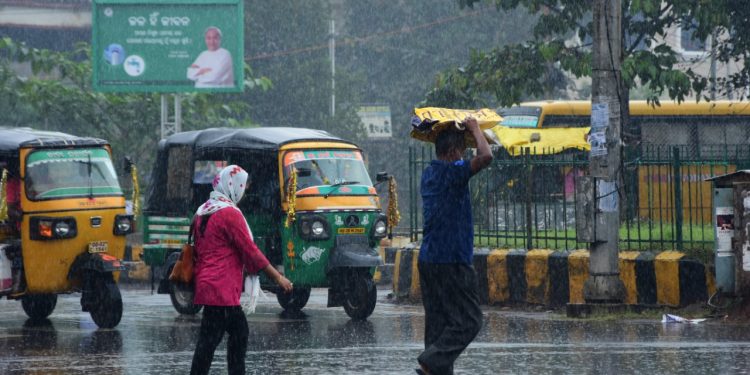Bhubaneswar: A fresh low pressure area formed over south Andaman Sea and adjoining Thailand coast Saturday morning, a weather official said.
The system is likely to move west-northwestwards and concentrate into a depression over north Andaman Sea and adjoining southeast Bay of Bengal by November 15, Meteorological centre weather scientist Umasankar Das said.
It is likely to continue to move west-northwestwards, intensify further and reach near Andhra Pradesh coast around November 18, he said.
Under its impact, heavy rainfall is very likely to occur at one or two places over the districts of Ganjam and Gajapati November 17, Das informed.
Squally wind with speed 55-65 kmph gusting to 75 kmph is likely over the west-central area adjoining east Bay of Bengal during November 16 to 18 and commence, along & off Andhra Pradesh and south Odisha coasts from November 17, Meteorological Centre, Bhubaneswar said in a bulletin.
The IMD’s regional centre has advised fishermen not to venture into deep sea areas of west-central Bay of Bengal during November 16 to 18 and along and off south Odisha coasts on November 17 and 18.
Meanwhile, a trough now runs from the cyclonic circulation over north interior Tamil Nadu to Gangetic West Bengal across Andhra Pradesh and Odisha and extends upto 0.9 km above mean sea level. Under its impact, heavy rainfall is occurring in coastal and adjoining areas of Odisha, it said.
Heavy to very heavy rainfall would occur in some parts of Khurda, Puri, Ganjam, Nayagarh, Gajapati, Cuttack and Jagatsinghpur on Saturday and Sunday.
At least eight places in Odisha received more than 100 mm rainfall in the past 24 hours. According to the weather office, Chhatrapur in Ganjam district recorded the highest 137.6 mm rainfall in the last 24 hours, followed by Aska in the same district with 135.2 mm.
While Puri received 124 mm rainfall during the period, Belaguntha recorded 123.3 mm rainfall, followed by Bhanjanagar (119 mm), Digapahandi (119 mm), Banpur (107 mm) and Gopalpur (100.4 mm).
The Met centre has advised farmers in the likely affected districts to take care of their harvests.
IANS







































